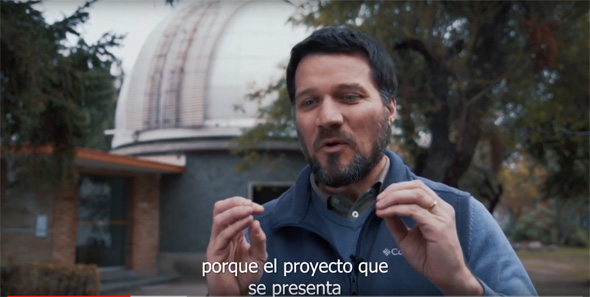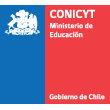Universidad de Chile launches a web serie of technologies developed in the institution
RAKIDUAM is the unprecedented documentary series promoted by the Vicerectory for Research and Development (VID) of the House of Bello, which seeks to strengthen the national and international positioning of the technologies made by researchers belonging to the institution, to contribute to the solution of local and global challenges that the humanity is facing.
Mapudungun, the language of oral tradition of the Mapuche people, Rakiduam means "thought." Since its foundation, the University of Chile has assumed with commitment and vocation of excellence, the training of professionals to contribute with the development of the country. This web documentary series will feature 10 chapters and it highlights the innovative work of academics, researchers and centers of excellence to overcome the global challenges the planet is facing.
The pre-premiere of the first chapter of the web series was held on Tuesday, December 10 in tower 15 of the Andrés Bello Campus with the presence of the Vicerector for Research and Development, Flavio Salazar, the Director of Innovation, Carlos Saffie, and researchers and collaborators who participated in this project. During the instance, the need to strengthen the link with the Ministries of Education, Economy and the Ministry of Science and Technology from initiatives such as this one was highlighted.
According to Vicerector Salazar, this marks a milestone and is one of the key elements in the lines of work of the VID. “Our mission is not only to articulate and generate activities around research, but also to be able to spread it and do it in a professional, high quality, entertaining and elegant way. In addition, it seems to me that this first chapter communicates in an excellent way the importance of innovation in scientific work. It is possible to show graphically through the stories, the idea behind these inventions that will play such an important role in the development of our country,” he explained.
On the same line, the director of Innovation of the VID, Carlos Saffie, valued this work as an opportunity to motivate other academics to participate and be part of these initiatives. “This is fundamental since it allows to spread the enormous efforts that the university makes in research and innovation, trying to bring these results to a social impact. The doors are open to all those who want to develop and scale their inventions, "he said.
“Stars and stakes”
“There is no practical reason to look at the sky. We look at it to learn. Humanity, homosapiens to put it one way, we have been curious from the beginning as other mammals also are, and it is almost an evolutionary response: being curious is good. I believe that one of the most beautiful things life has is to understand how things work, how nature works and even how machines work. Why do we do it? It is for the delight of knowing, of knowing more, of learning.” With those words, Ricardo Finger, professor of the Department of Astronomy of the Faculty of Physical and Mathematical Sciences of the University of Chile (FCFM), begins the first episode of the documentary web series.
The academician and protagonist of the chapter is part of the Center for Astrophysics and Related Technologies (CATA), one of the centers of excellence that are presented in this documentary. Located at Cerro Calán, this place is the largest national entity dedicated to the research and development of technologies linked to astronomy. The area of astronomical instrumentation arises due to the arrival of ALMA to Chile with the intention of building a prototype of one of its 10 observation bands, demonstrating that high-level technology can be done here.
Professor Finger explains during the episode that the work and technologies they have developed in the center not only point to the stars, but has also adapted to other disciplines such as mining, building stakes to measure the humidity in mine sites. On the other hand, these same tools are fulfilling a key role in the prevention of floods in San José de Maipo, controlling stability, humidity and temperature in the middle of a landslide. This landslide is located just above the sanatorium of the town, where an eventual collapse would make the evacuation of the place impossible. In relation to the premiere of the web series, the academician only had compliments. “The work is fabulous and exceeded expectations with a story that flows naturally and tells a story that is accessible to everyone, so from that point of view it meets the objective of extending what we do in the University to the rest of the people. In CATA they will be happy, the chapter has an artistic value by itself and that is appreciated” he closed.
|
|
Share | Tweet |

|
||
|



